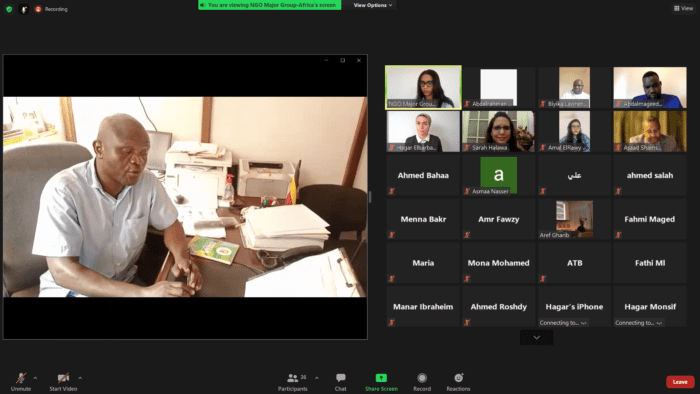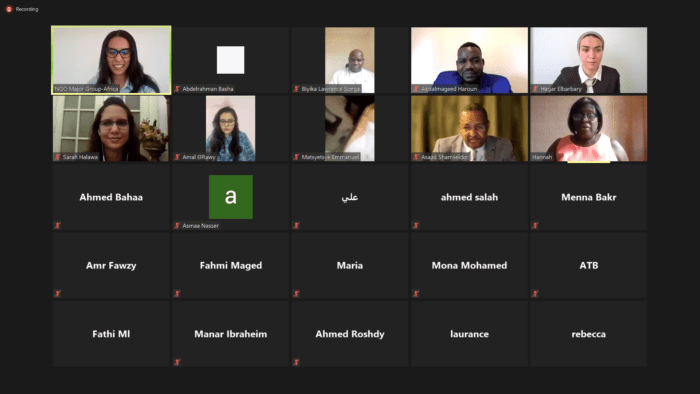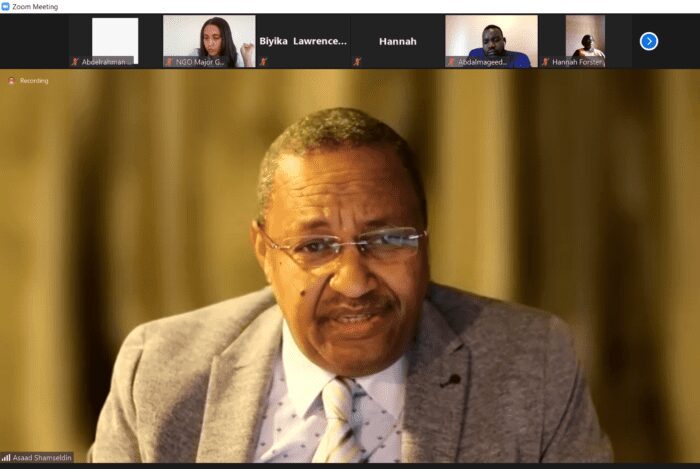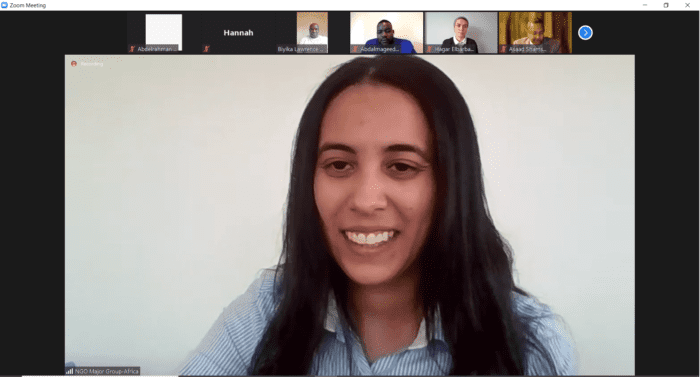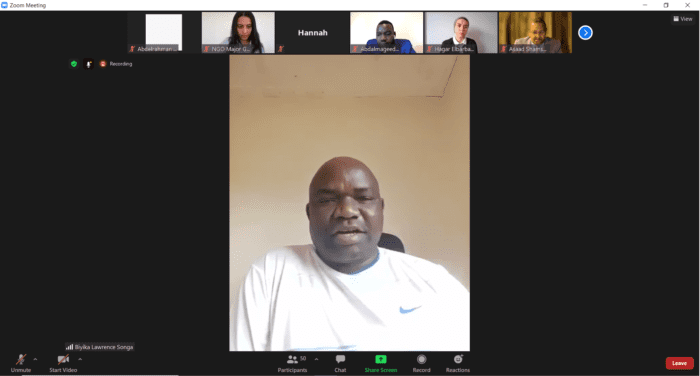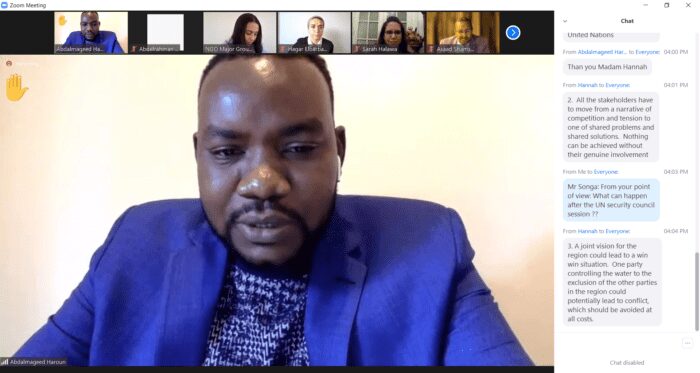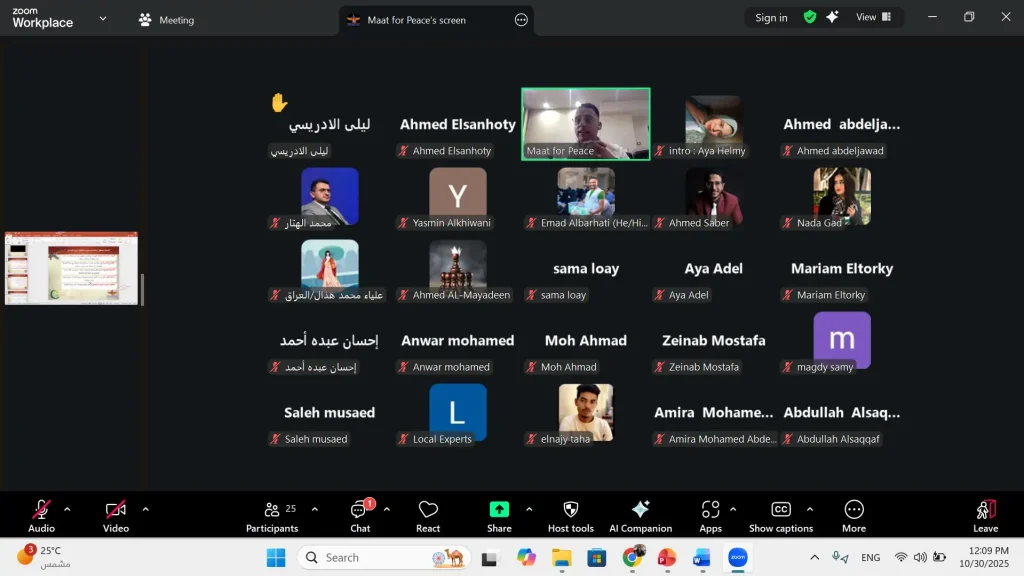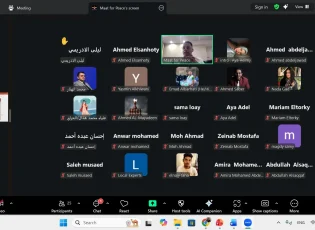Experts have unanimously agreed on the need to reach a legally-binding agreement that protects the interests of all peoples
Maat for Peace, Development and Human Rights Association, participated in the webinar which the NGOs Major Group in Africa organized on water disputes and its effects on sustainable development in Africa in general and the Nile Basin in particular. The event has focused mainly on the Nile River and the Grand Ethiopian Renaissance Dam (GERD) crisis, in light of the dispute between Egypt and Sudan, on the one hand, and Ethiopia, on the other, over the effects of the dam.
Henry Orikot, chair of Infrastructure and Energy Cluster at the African Union's Economic Social and Cultural Council (ECOSOCC), stated that water is a primary source of life that should not be monopolized by any country, and must be used for the benefit of all societies, stressing that the failure to do so would lead to instability in the region. Orikot also recommended the importance of adopting a cooperative approach to reach peaceful solution to the GERD crisis.
From Gambia, Hannah Foster, the executive director of the African Center for Democracy and Human Rights Studies, commented on the challenges facing the countries parties to the crisis, and the potential impacts on the agricultural and economic sectors in the downstream countries in exchange for the availability of energy for the State of Ethiopia. Foster stressed that the GERD could be very beneficial for Ethiopia; however, the rights of Egypt and Sudan must be taken into account. She further added that the potential risks that may arise from the establishment of the GERD will not only affect the three countries concerned, but also the whole African continent.
From Uganda, Biyika Lawrence Songa, a member of the Ugandan Parliament, focused on the relationship between water and the state economy. He stated that Ethiopia's purpose for building the GERD is not only to achieve the economic development for meeting water or energy demands, but also to control the shares of water that goes to downstream countries. Songa recommended that there must be a gathering of parliamentarians from all the Nile Basin countries and an alliance must be formed, based on diplomacy, serious dialogue and sustainable management of the GERD crisis.
From New Zealand, Asaad Shamseldin, associate professor at the University of Auckland, confirmed that there is a significant impact of the GERD on Sudan, noting that Sudan is the most affected by negative repercussions of the dam. Shamseldin added that it is illogical to build such a huge dam without preparing sufficient studies on the damages and benefits of the dam, especially its impact on neighboring countries, with particular emphasis on Sudan. Moreover, he recommended the importance of returning to the negotiating table with informing and sustainable studies that provide for peaceful solutions.
From Finland, Hajar El-Barbary, the special adviser of the Center for Global Nonkilling (CGNK), stressed the future concerns and the negative repercussions of the GERD, and called on Ethiopia to delay the second filling of the dam, cooperate with the other countries by revealing all the dam-related data and sharing it with them, and help them in preparing studies that cover all the sides of the dam, especially its negative impacts. She also valued the importance of cooperation in preparing joint studies and exchanging information to find common solutions to the GERD crisis.
From the United States of America, Abdul-Majid Haroun from the African League Forum for Rights and Development, valued the powerful role that civil society must play in pressuring the African Union to take more effective steps in settling the standing dispute between the three countries, in a manner that takes into account the rights of all peoples.
Notably, the NGOs Major Group in Africa is a gathering of NGOs and civil society, affiliated with the United Nations Department of Economic and Social Affairs. The group is currently participating in the activities of the United Nations High Level Political Forum (HLPF). Maat is also considered the regional coordinator for the North Africa region in the NMGA.
shortlink: https://maatpeace.org/en/?p=33325


